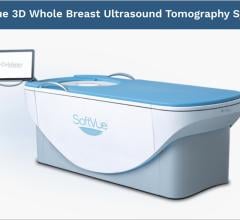October 11, 2013 — High levels of high-density lipoprotein (HDL) have been linked to increased breast cancer risks and enhanced cancer aggressiveness in animal experiments.
A team of researchers led by Philippe Frank, Ph.D., a cancer biologist in the department of biochemistry and molecular biology, Thomas Jefferson University, has shown that an HDL receptor found on breast cancer cells may be responsible for this effect, proposing a new molecular target that could help treat the disease.
"If we can block the activity of the HDL receptor in breast cancer, we may be able to limit the harmful effects of HDL while maintaining levels that are beneficial for blood vessels," said Frank.
The work was published in the journal Breast Cancer Research.
To study the effect of HDL on cancer cells at the molecular level, Frank and colleagues exposed breast cancer cell lines to HDL and noticed that signaling pathways involved in cancer progression were activated, and that the cells began to migrate in an experimental model mimicking metastasis.
The researchers then limited the expression of the HDL receptor SR-BI in the cells using silencing ribonucleic acid (RNA) to reduce the receptor’s levels. This reduced the activities of the signaling pathways that promote tumor progression. In addition, cells with fewer SR-BI receptors displayed reduced proliferation rates and migratory abilities than cells with normal SR-BI levels. Most importantly, reduced SR-BI levels were associated with reduced tumor formation in a mouse model of tumorigenesis. The researchers then blocked the SR-BI receptor in a breast cancer cell line with a drug called BLT-1 and noticed reduced proliferation and signaling via proteins linked to tumor formation.
This study supports the idea that HDL plays a role in the development of aggressive breast cancers and that inhibiting its function via SR-BI in breast cancer cells may stall cancer growth.
Additional studies will be needed to develop more specific drugs to inhibit SR-BI. "Also, we need to understand what levels of cholesterol are required by the tumor before trying to reduce or modify lipid levels in cancer patients," said Frank. “We hope this study will lead to the development of new drugs targeting SR-BI or cholesterol metabolism and eventually preventing tumor progression.”
For more information: www.jefferson.edu, www.breast-cancer-research.com


 July 29, 2024
July 29, 2024 








